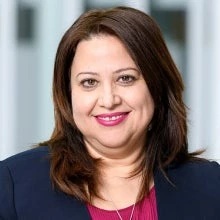 In Southeast Asia, social media penetration rates exceed 60 percent and about 80 percent of consumers are getting information on products and services from social media.
In Southeast Asia, social media penetration rates exceed 60 percent and about 80 percent of consumers are getting information on products and services from social media.
Say you own a small but growing handicrafts business in a rural province and were recently featured in a travel article, but you are having a hard time finding ways to sell your products internationally. Or you’re a teacher doing freelance translation online, and you’re eager to find new reading materials for your students. Or you and your college friends won a “young entrepreneur” competition and want to start a business but lack the three forms of ID required for a bank account. Perhaps you live in a region that has produced “unicorns” (high-value technology companies), but the internet in your village is “slower than a turtle”.
These sum up some of the opportunities and challenges facing Southeast Asia’s digital economy. In the last few years, the region has seen dramatic increases in internet access, social media usage and, in the larger economies, e-commerce. In Southeast Asia, social media penetration rates exceed 60 percent and about 80 percent of consumers are getting information on products and services from social media. E-commerce spending is also rising. In Thailand, for example, 35 percent of people aged 15-24 used the internet to buy something online in 2017. For Indonesia, the figures are 10 percent and 22 percent respectively.
But how can digital technologies benefit small business development – particularly outside of large cities? What can governments effectively do to promote or accelerate digital development?
A new report - “Digital Economy in Southeast Asia: Strengthening the Foundations for Future Growth” – one of several being prepared by the World Bank on the global digital transformation, focuses on how Southeast Asia can overcome the still very significant barriers to the expansion of its digital economy. A few priorities stand out.
The first is to improve connectivity. Despite big improvements in access in recent years, around half the population of ASEAN still lacks affordable, reliable high-speed Internet access. In some of the larger economies only 2 out of 5 people have access to high speed (4G) mobile internet—in the lower income economies it’s only 1 out of 5. More investment by telecom companies is needed, though that’s only half the story. Policymakers can also help through regulatory reforms that open up the sector. In some countries, the broadband market is dominated by one or two large firms, often state-owned. Reforms that promote competition, including in less well served rural areas, could help lower prices and increase quality of service.
Countries should also focus on strengthening the population’s digital skills. Although the region already has good literacy and numeracy foundations, education systems could be nimbler in developing the skills needed for the digital economy. These range from basic computer usage to advanced skills like coding and data analytics, as well as “soft skills” like collaboration, communication and problem-solving. Achieving this requires a focus on lifelong learning -- not necessarily acquiring specific degrees but developing skills for life. Singapore’s Skills Future initiative, which provides resources for ongoing re-training and skills development, is one example.
Digital payments are an essential part of a digital economy, and expanding their use is another priority for Southeast Asia. In many countries in this region payments are overwhelmingly cash based. The latest World Bank Global Findex data shows that only 19 percent of financial account holders in the region access their accounts using a mobile phone or the Internet. Governments can help by putting the right regulatory infrastructure in place and by allowing citizens to pay for government services and receive pensions and other payments online. Government-run digital ID schemes can also help citizens gain account access more easily.
Another barrier, especially for e-commerce, is the region’s expensive and unpredictable logistics. The challenging geography of many South-East Asian countries is an important factor, but regulation also plays a role. A recent ASEAN Services Integration Report showed that logistics barriers to cross-border trade in ASEAN countries are among the highest in the world. E-commerce shipments face unpredictable customs procedures in many countries. The World Bank Logistics Performance Index shows that customs procedures are often the weakest area of performance across the region’s logistics environment.
Policies that promote trust are essential for growing participation in the digital economy. These cover a range of areas from data privacy, to cybersecurity, to consumer protection. Fewer than half of ASEAN countries have comprehensive data protection laws, and the capacity of data protection authorities remains limited. Policies are also not coordinated regionally, making it hard for individuals and businesses alike to know what regulations apply when their data moves across borders.
Finally, governments should lead by example and become more digital themselves. This means streamlining systems on an integrated basis across government agencies and offering digital services platforms that support businesses and reduce transaction times and costs, like online licensing and permit approvals. Initiatives such as national digital ID can trigger direct benefits in other areas of the digital economy – helping people to undertake secure online transactions, and effectively use a variety of government online services.
But by focusing on these priorities, while boosting the region’s capacity and brokering technology to solve its development problems, Southeast Asian countries will be better positioned to unlock the full potential of the digital economy.



Join the Conversation